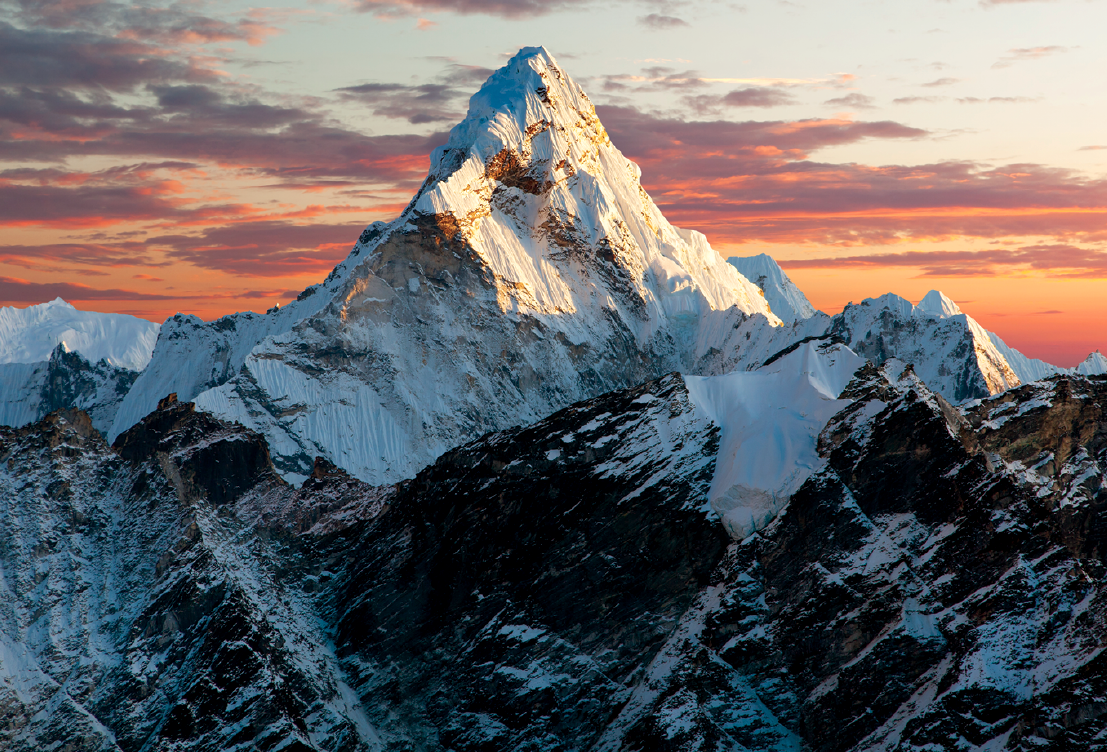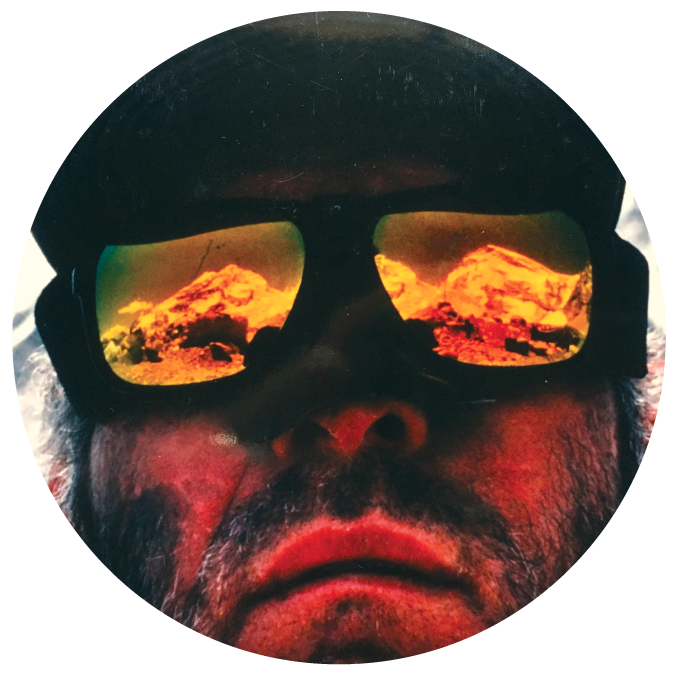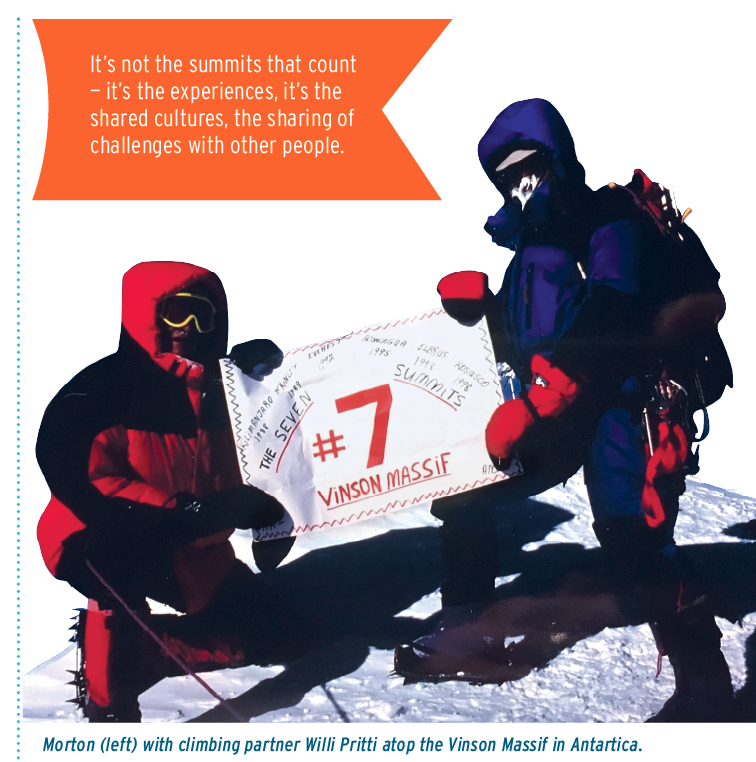Frostbite, bankruptcy and leukemia couldn’t keep one alumnus from a lifetime of adventure.
By Derek Herscovici ’14

WHAT WAS HUGH MORTON ’69 THINKING when he felt his toes freezing on the slopes of Mount Everest? The same thing he told himself when the housing market collapsed and his homebuilding company tanked. The same thing he told himself when he was diagnosed with leukemia: Don’t stop. Keep going.
In countless journeys around the globe, he faced perils of all kinds, only to find a way forward and out.
“You’ve got to meet the challenge,” said Morton. “Meeting the challenge can be harder than overcoming it.”
An economics graduate at Auburn, he earned his MBA while working as a graduate teaching assistant. He was working in the banking industry for over a decade when, in 1986, he decided to join a guided trek through the Himalayan mountain range. Catching sight of Mount Everest at 18,000 feet, Morton was captivated. He decided to spend the next five years training with a group of experienced climbers, making his first summit on Mount Baker, which is located in Washington, in preparation for the real thing.

When his climbing partner Todd Burleson finally called and formally inducted him into their Everest team, he was ecstatic. But that night, he dreamed he reached Everest’s penultimate point, the Hillary Step, only to slip and fall off the mountain. He woke up in a cold sweat.
Regardless, in 1992 Morton was able to summit Everest on his first attempt, a feat difficult even for experienced climbers. As he descended the Hillary Step, he slipped. Hanging off a 7,000-foot cliff, Morton realized it felt familiar.
“In that dream, I visualized to myself what I would do up there and darn it if I didn’t have to do it,” said Morton. “Everything I imagined ended up happening, except it wasn’t on the way up, it was on the way down. I got back down there and someone said ‘damn good way to make a widow out of your wife.’”
Back home in Atlanta, a lack of a tangible goal left Morton in limbo. When Burleson invited him to tackle the Seven Summits, he jumped at the chance. Over the next 33 years, he would scale 85 mountains around the world, overcoming obstacles on every one.
While summitting the Matterhorn in Switzerland, Morton and his climbing partners were trapped in a ferocious thunderstorm that nearly killed their entire team. Electricity was charging through their bodies, even after reaching basecamp. On his first attempt to summit Mount Elbrus in Russia, Morton brought his daughter Whitney along. When she slipped headfirst down an icy ridge, he had to dive with a body-block to halt her fall.

The first time he attempted to summit Chimborazo in Ecuador, they had to turn around in the face of 100-mph winds.
On Mount McKinley, now called Denali, in Alaska, Morton and his climbing partners narrowly escaped freezing to death after the ice cave they slept in collapsed during the night. While summitting the Vinson Massif, the highest point on Antarctica and the last of Morton’s Seven Summits, his legs froze nearly to the point of frostbite and would not feel normal again for another six months.
Morton was able to fund his adventures through his successful homebuilding business, Peachtree Homes, which he launched in 1991. He estimates he built more than 200 homes by 2006, but when the 2008 Recession collapsed the housing market, he was sleepless for weeks. When his wife took him to the doctor, they learned he had leukemia.
“It came at a bad time — the housing market was falling apart, and I had to deal with that, too. I needed to get the stress off; that’s when I started trying to dwindle [Peachtree Homes] down, finally decided to close it altogether in 2013.”
Morton could have declared bankruptcy like most other companies, but it would have left his hundreds of employees without pay. Peachtree Homes’ swan song was the expansion of Fort Benning in Columbus, Ga., which he used in part to pay off all his employees. Morton is still proud of that.
“I didn’t want to owe anybody anything; it took a big chunk I had stored aside to do it, but I’m not complaining. If I’m not rich, I’ve got a wealth of experiences with people that is worth more than any money.”
At work on his third book, a mountain-climbing memoir, he still finds time to climb a few easy peaks at 72. But, in the end, he says it was not the peaks that he remembers most. It was the experiences — struggling up the mountain, long days trapped in desolate, snow-capped peaks — that matters most.
“It’s not the summits that count — it’s the experiences, it’s the shared cultures, the sharing of challenges with other people. You don’t throw in the towel when things get tough,” said Morton. “The key to life is persistence — hang in there until the job is done.”
A Foundation to Lead: the Auburn Law Society
A student club started more than 60 years ago has had a far-reaching impact on the state of Alabama.
The Life of George McMillan ’66
From student government president to lieutenant governor and music festival empresario, George McMillan’s life of public service had an outsized impact on the state of Alabama.
An Eye for Action
From the mound to the mountain, Blake Gordon ’03 has captured life on the edge.
A Foundation to Lead: the Auburn Law Society
A student club started more than 60 years ago has had a far-reaching impact on the state of Alabama.
The Life of George McMillan ’66
From student government president to lieutenant governor and music festival empresario, George McMillan’s life of public service had an outsized impact on the state of Alabama.
An Eye for Action
From the mound to the mountain, Blake Gordon ’03 has captured life on the edge.


